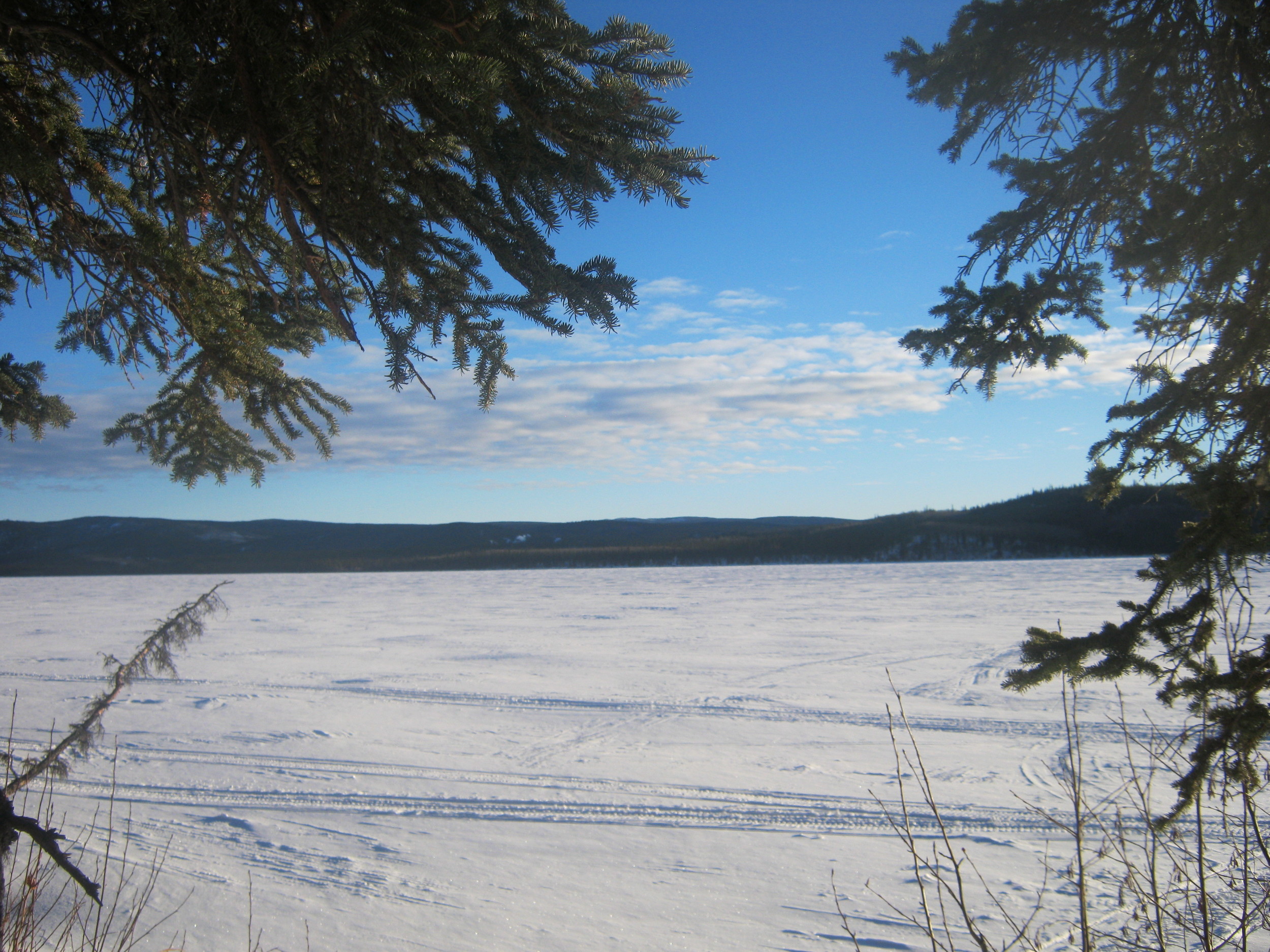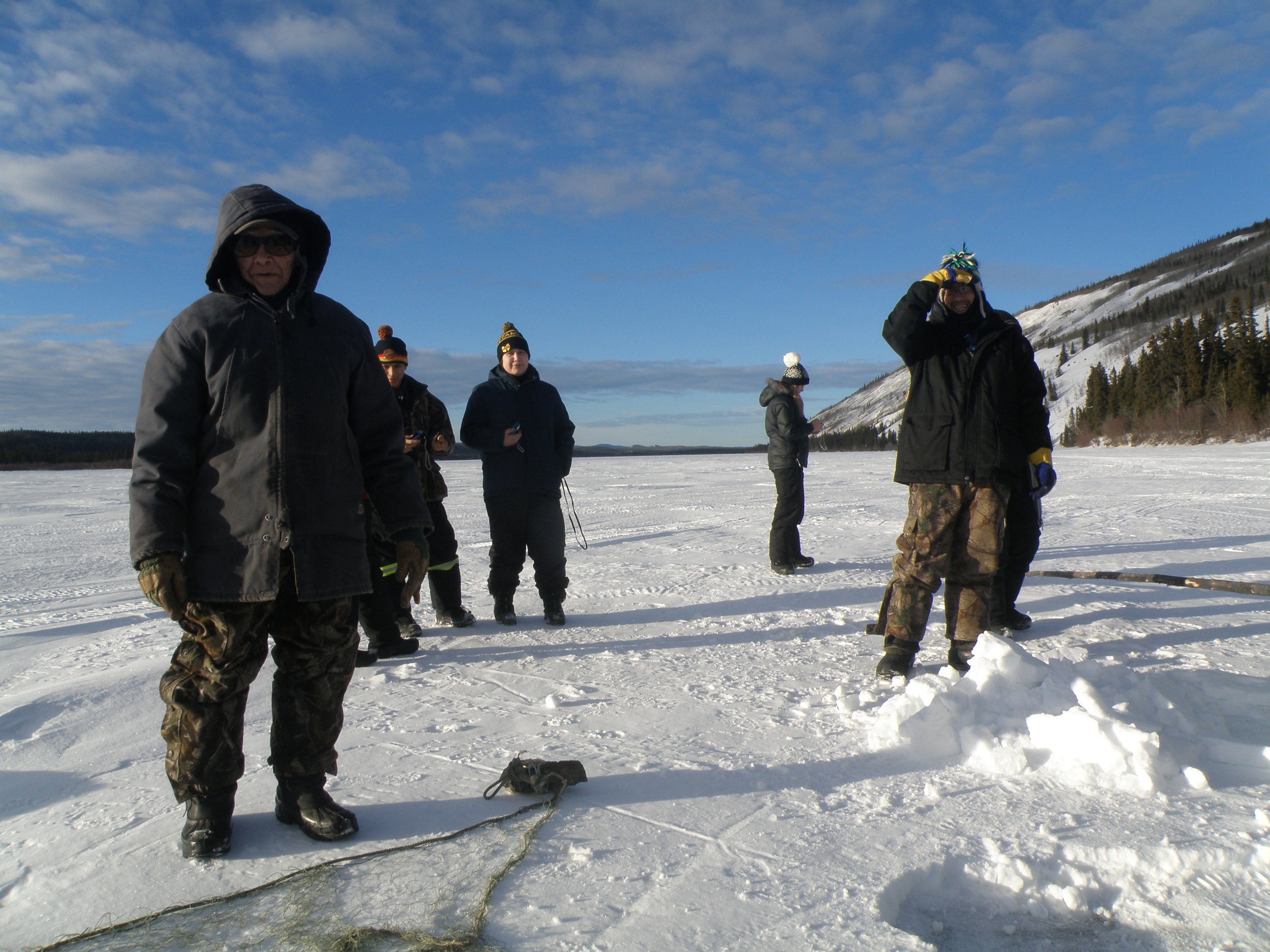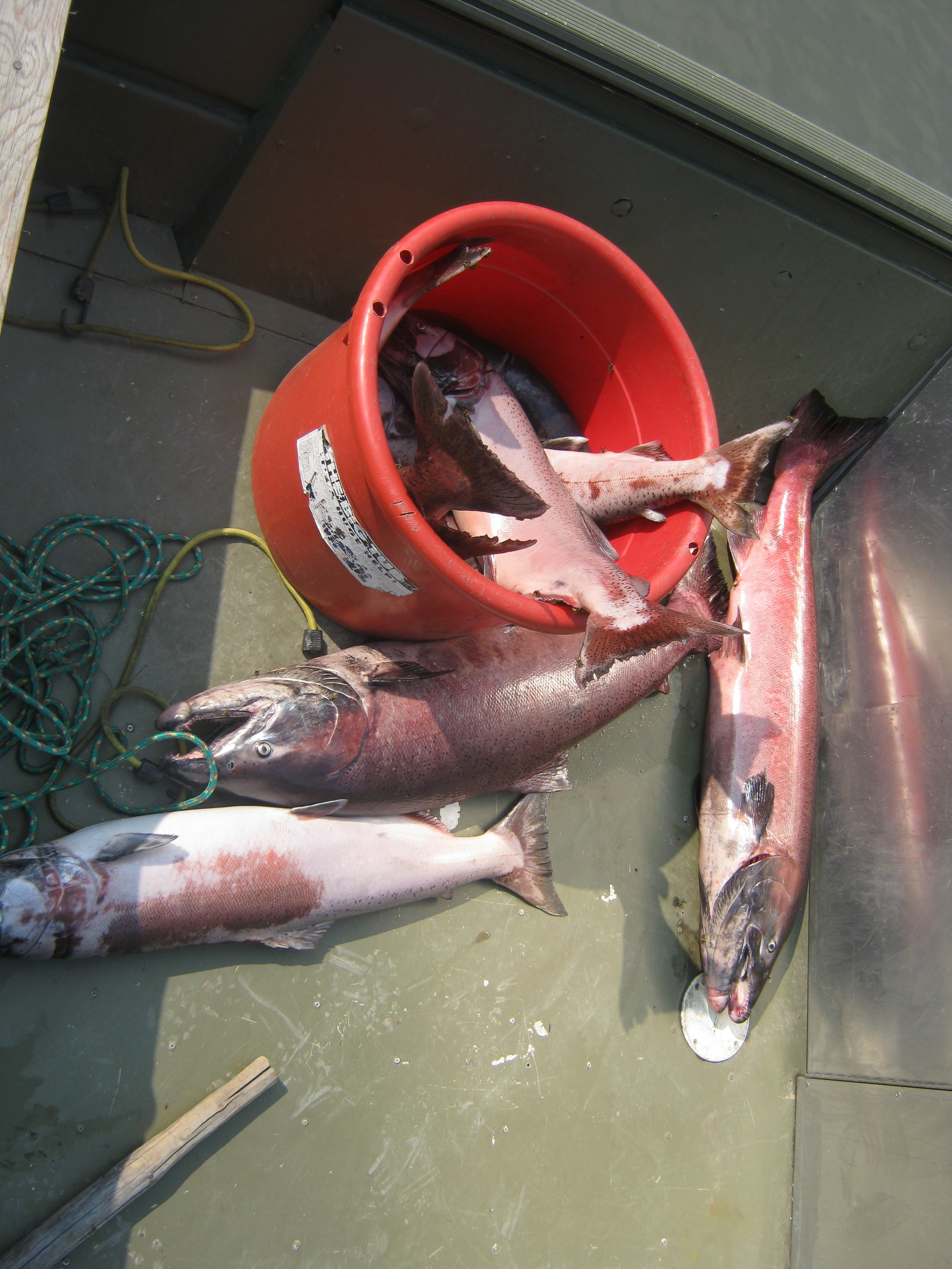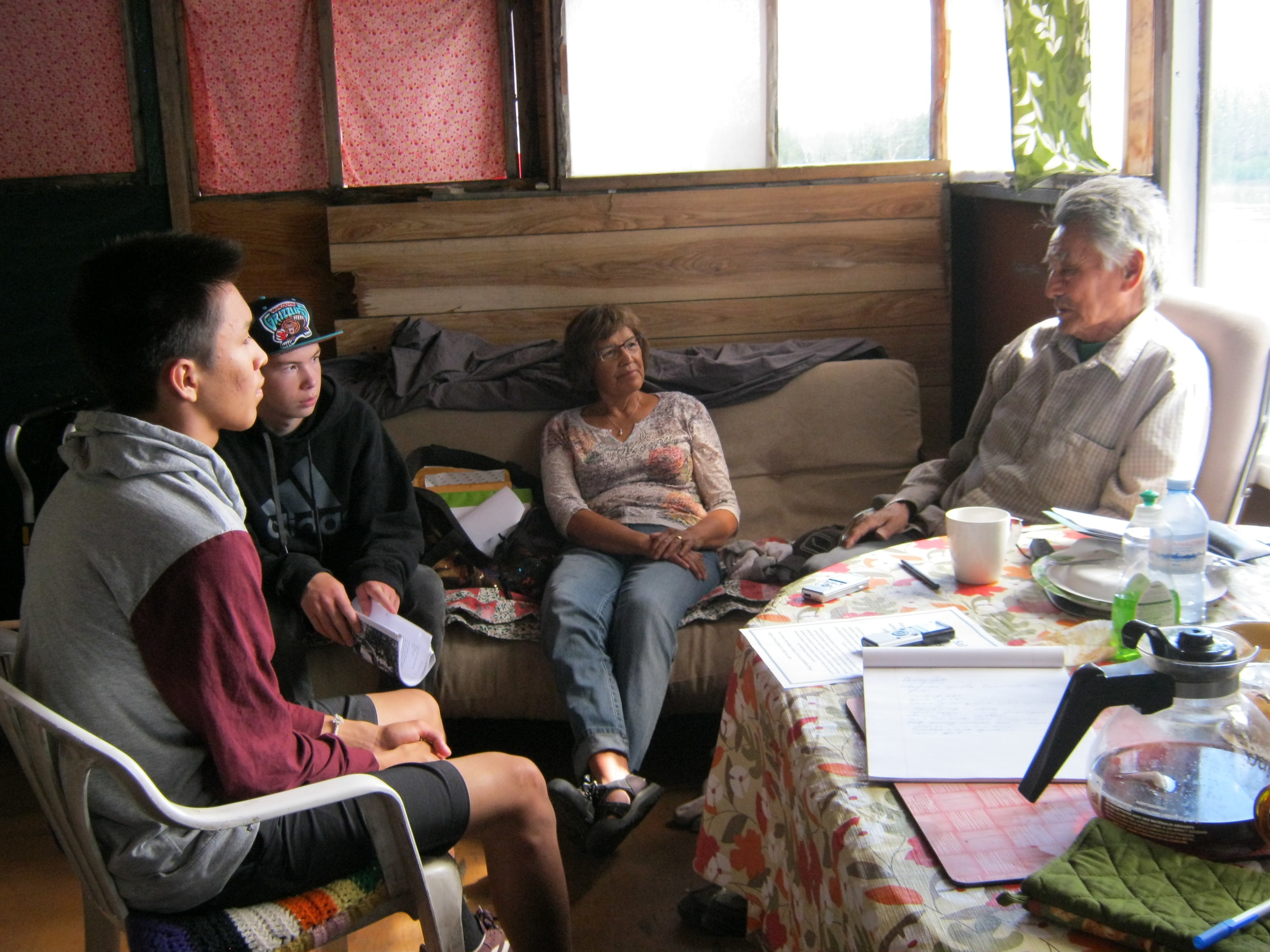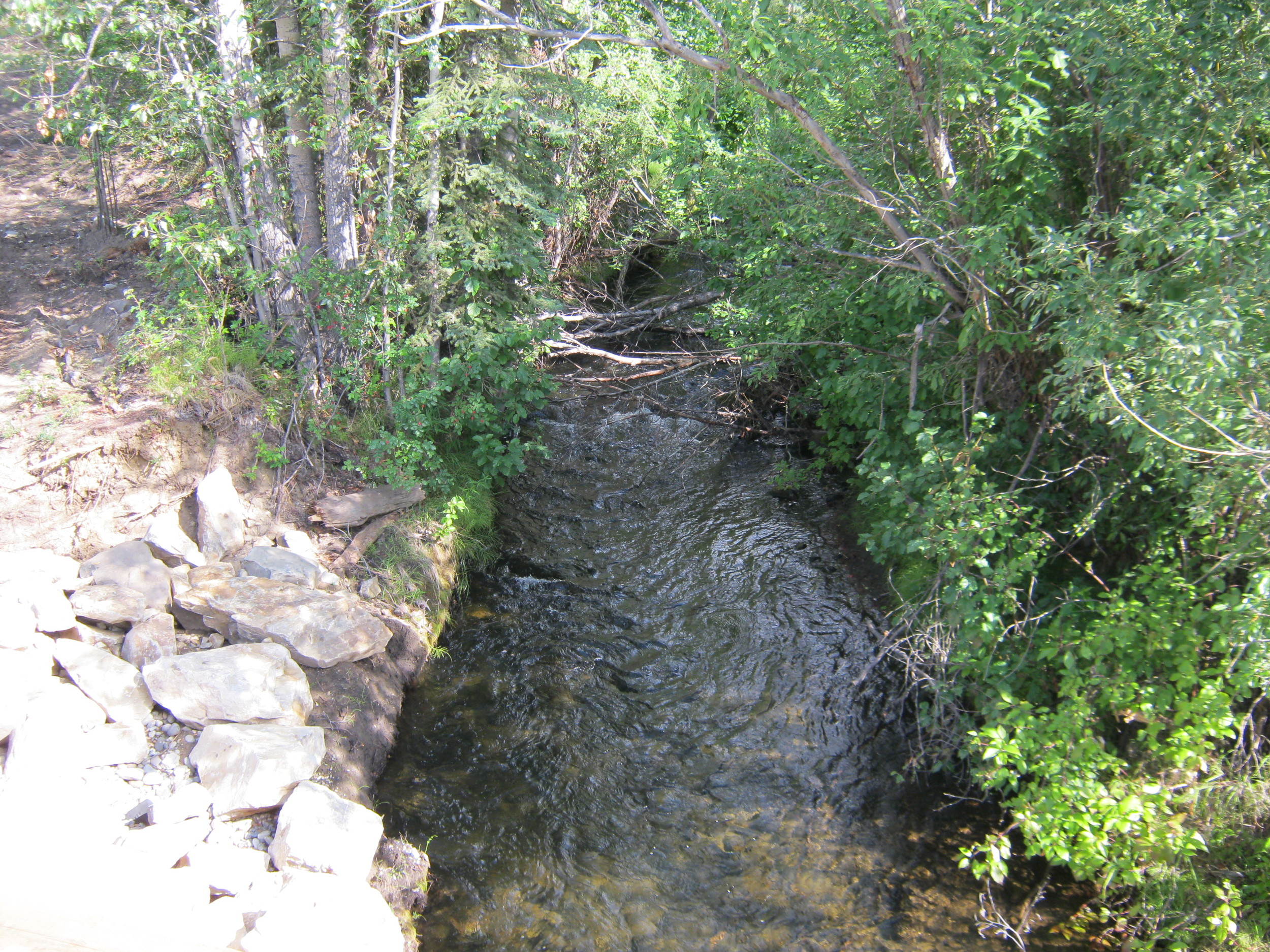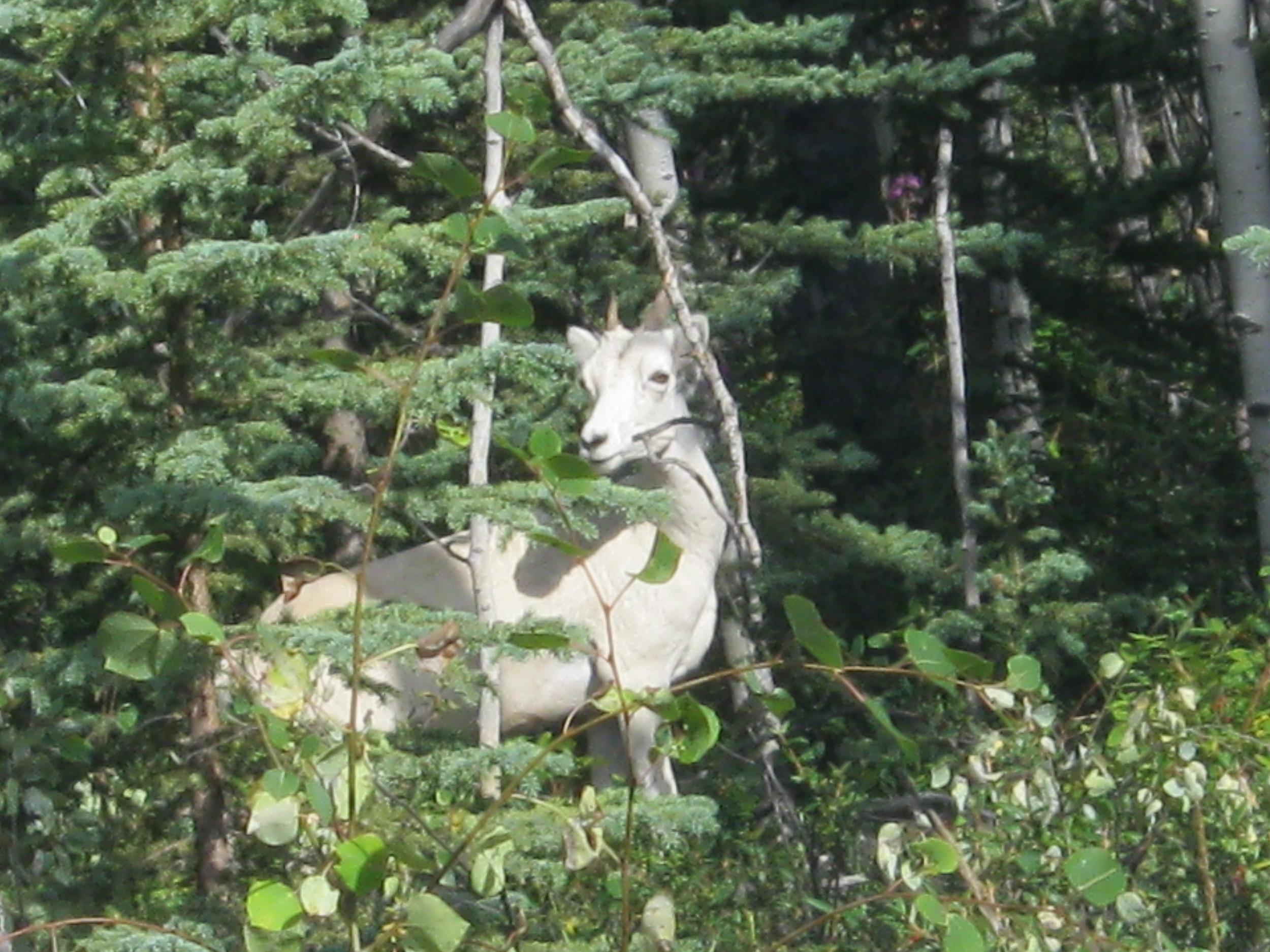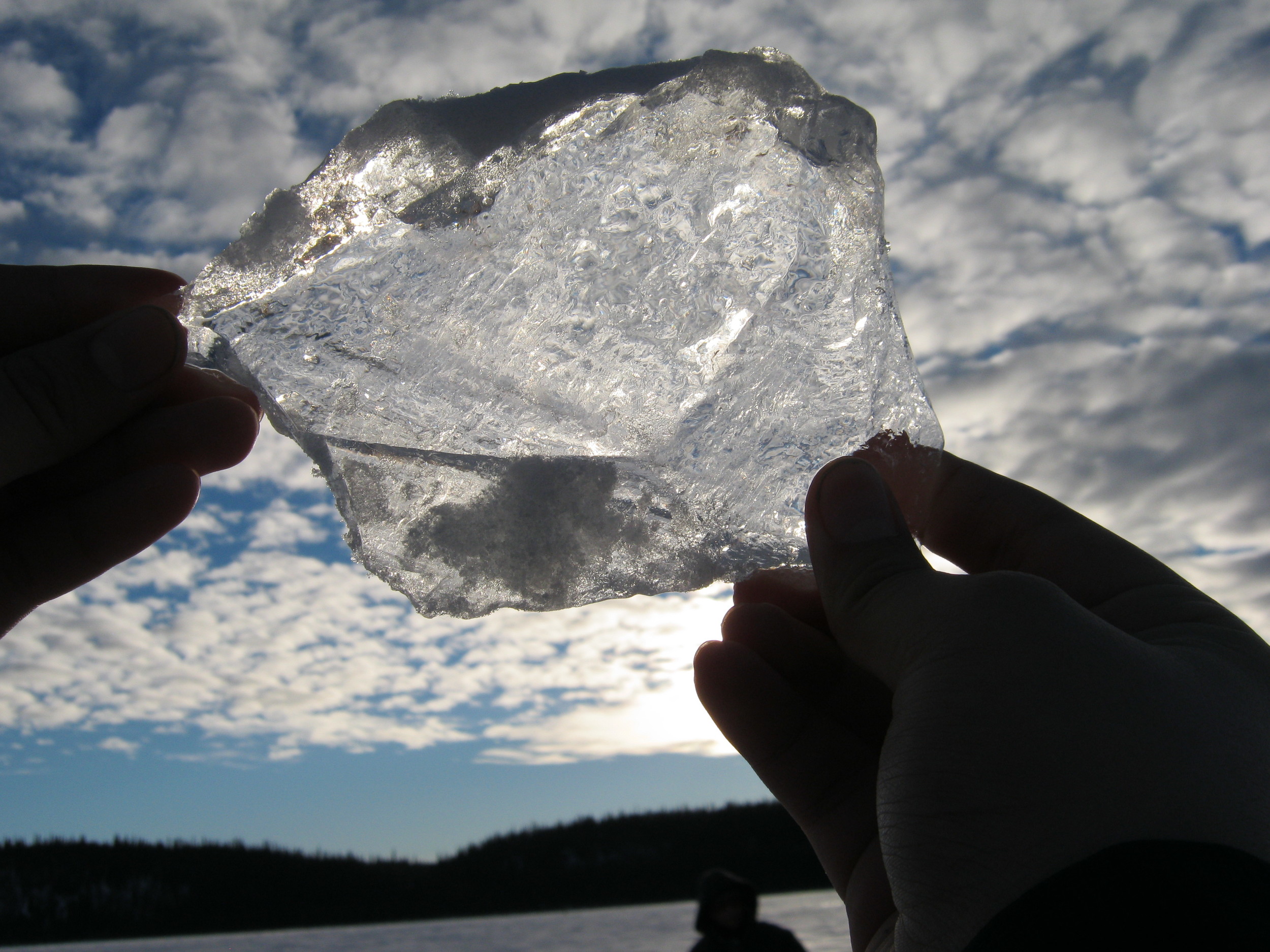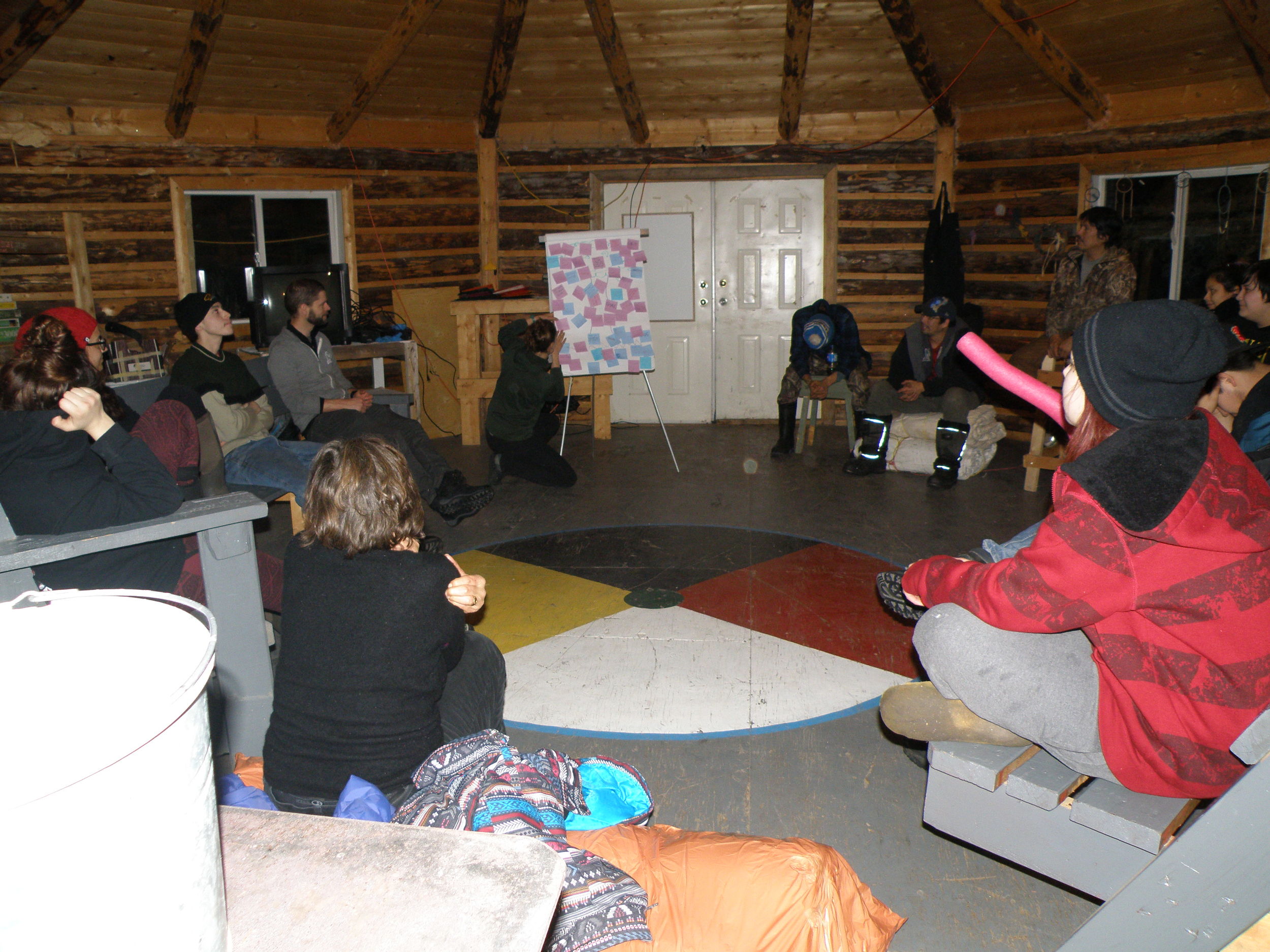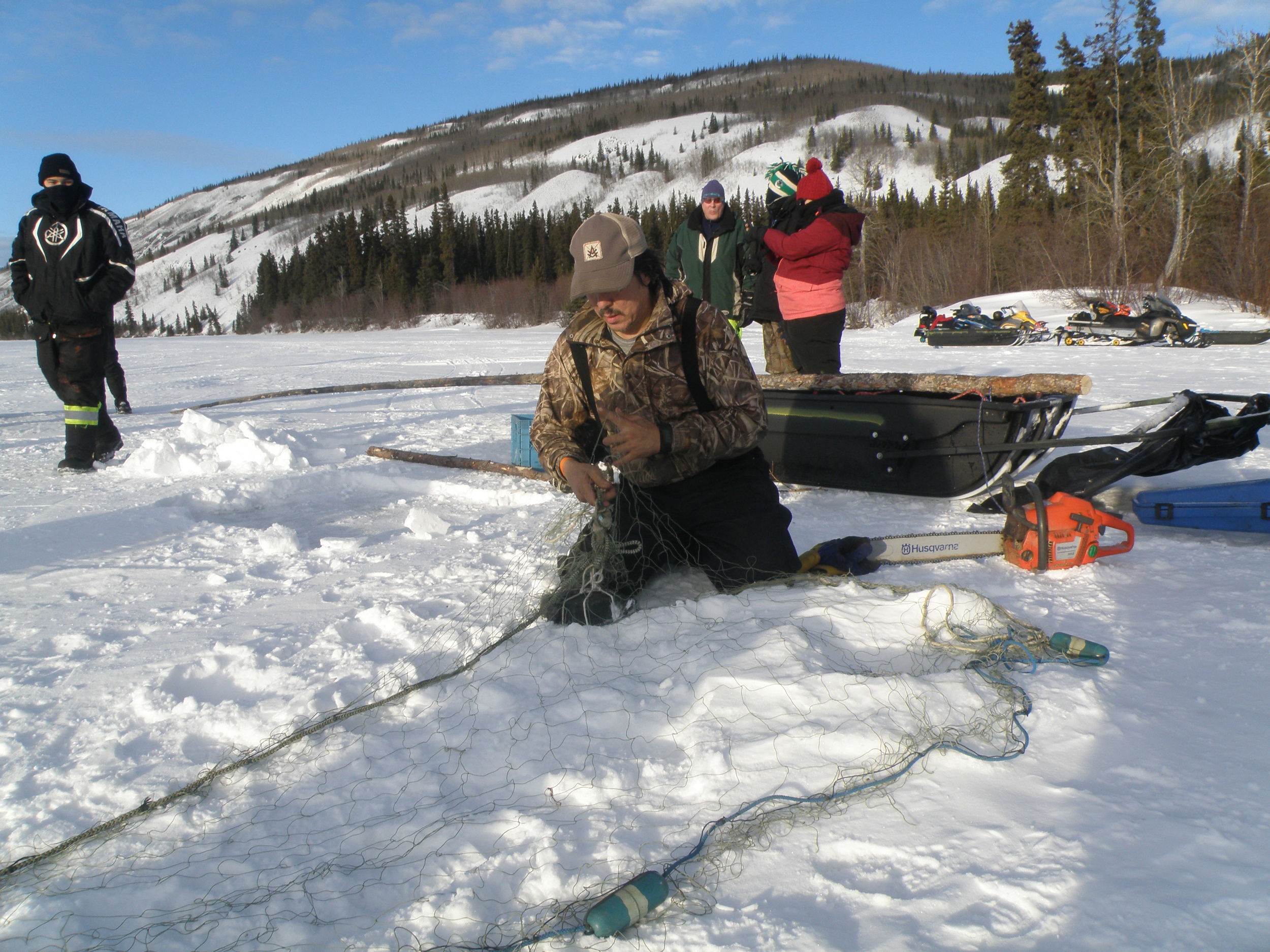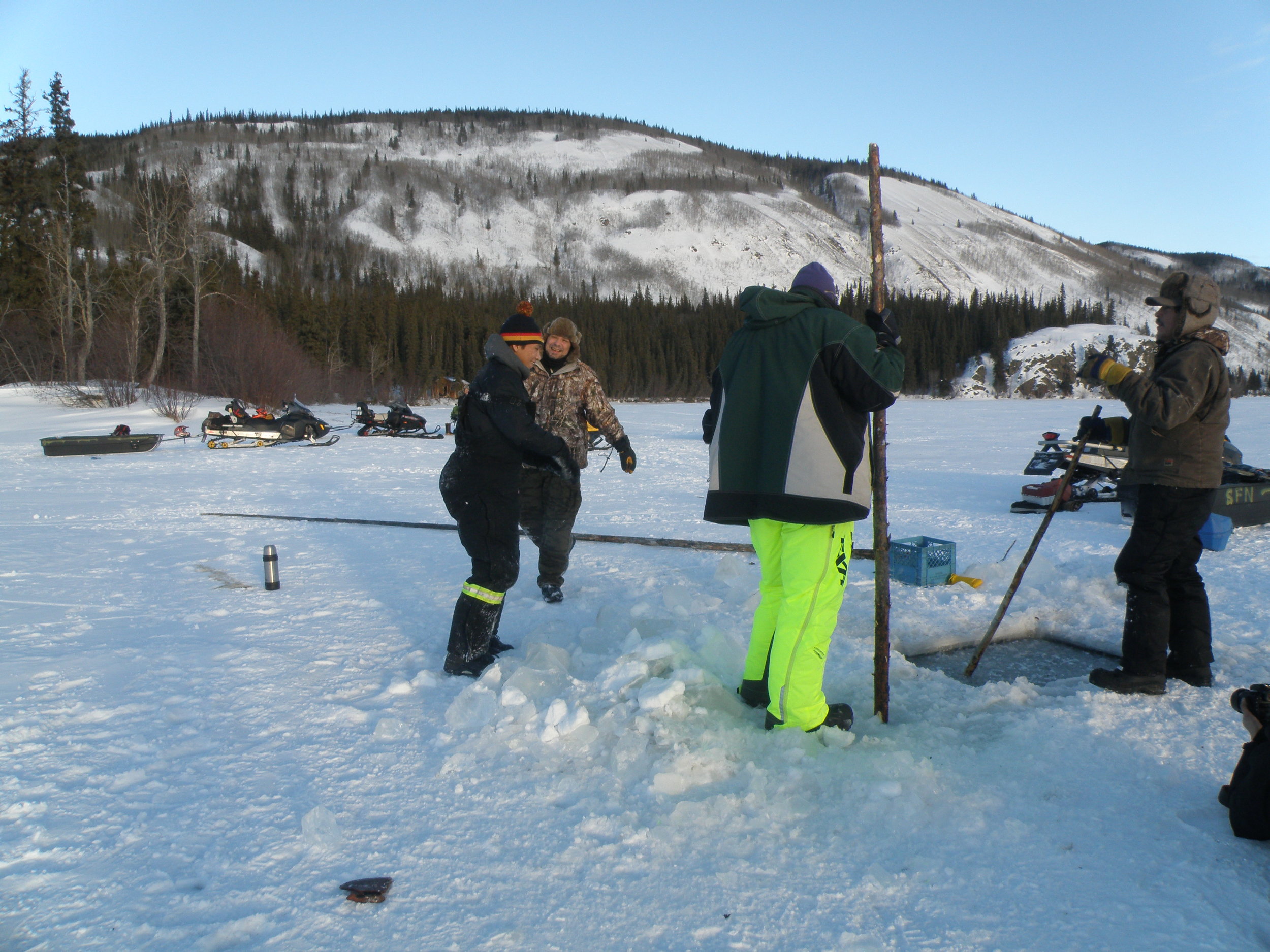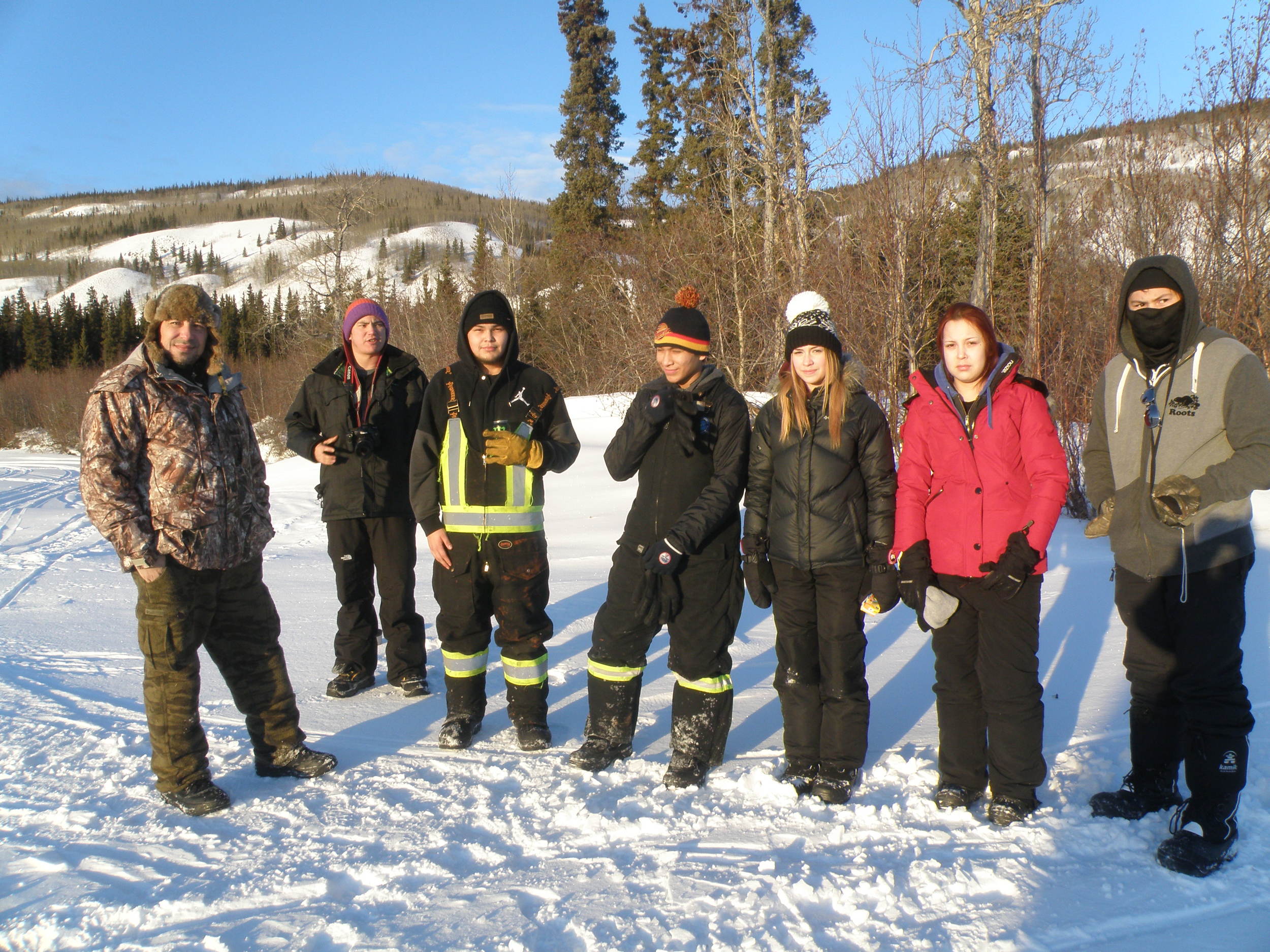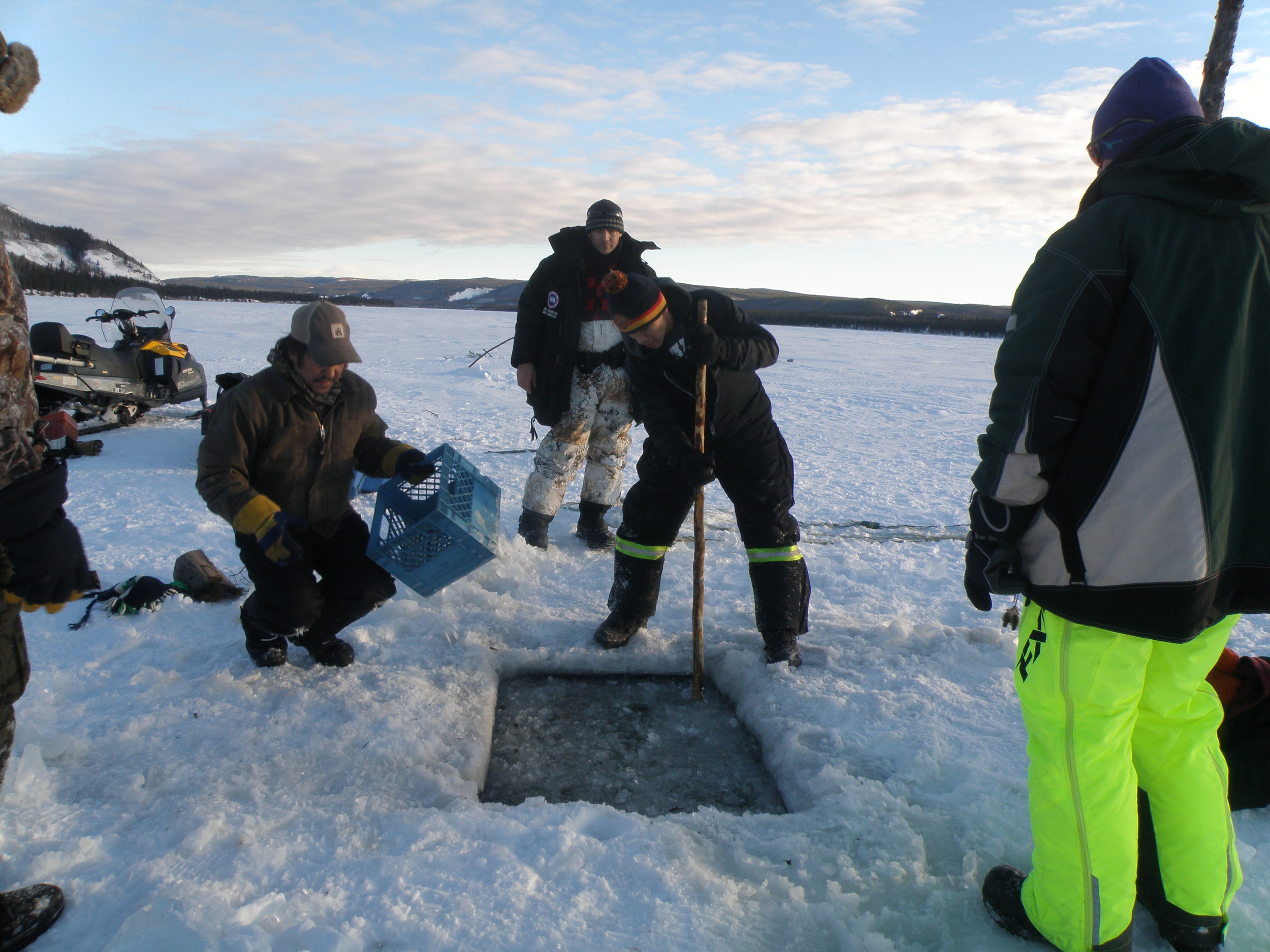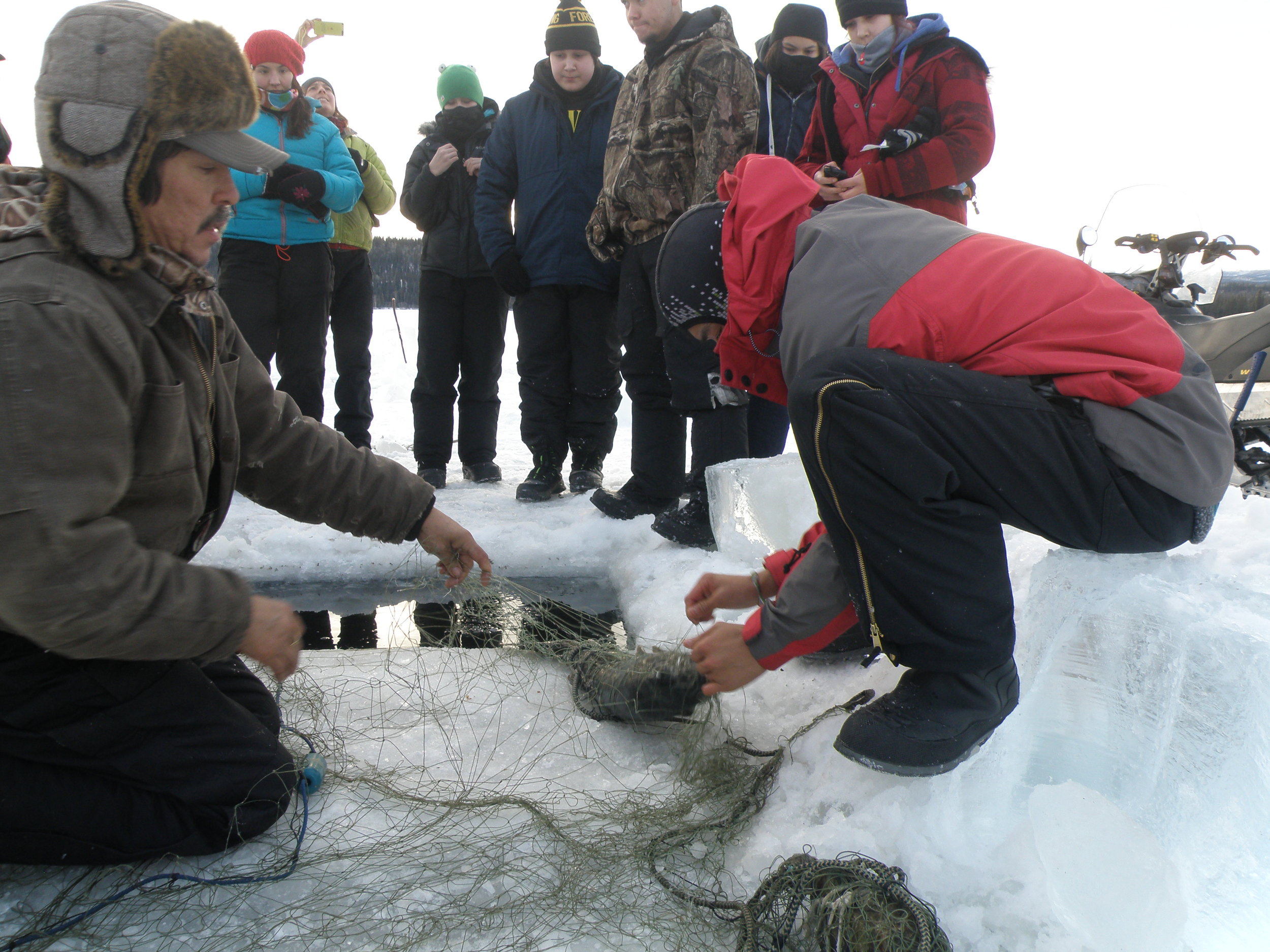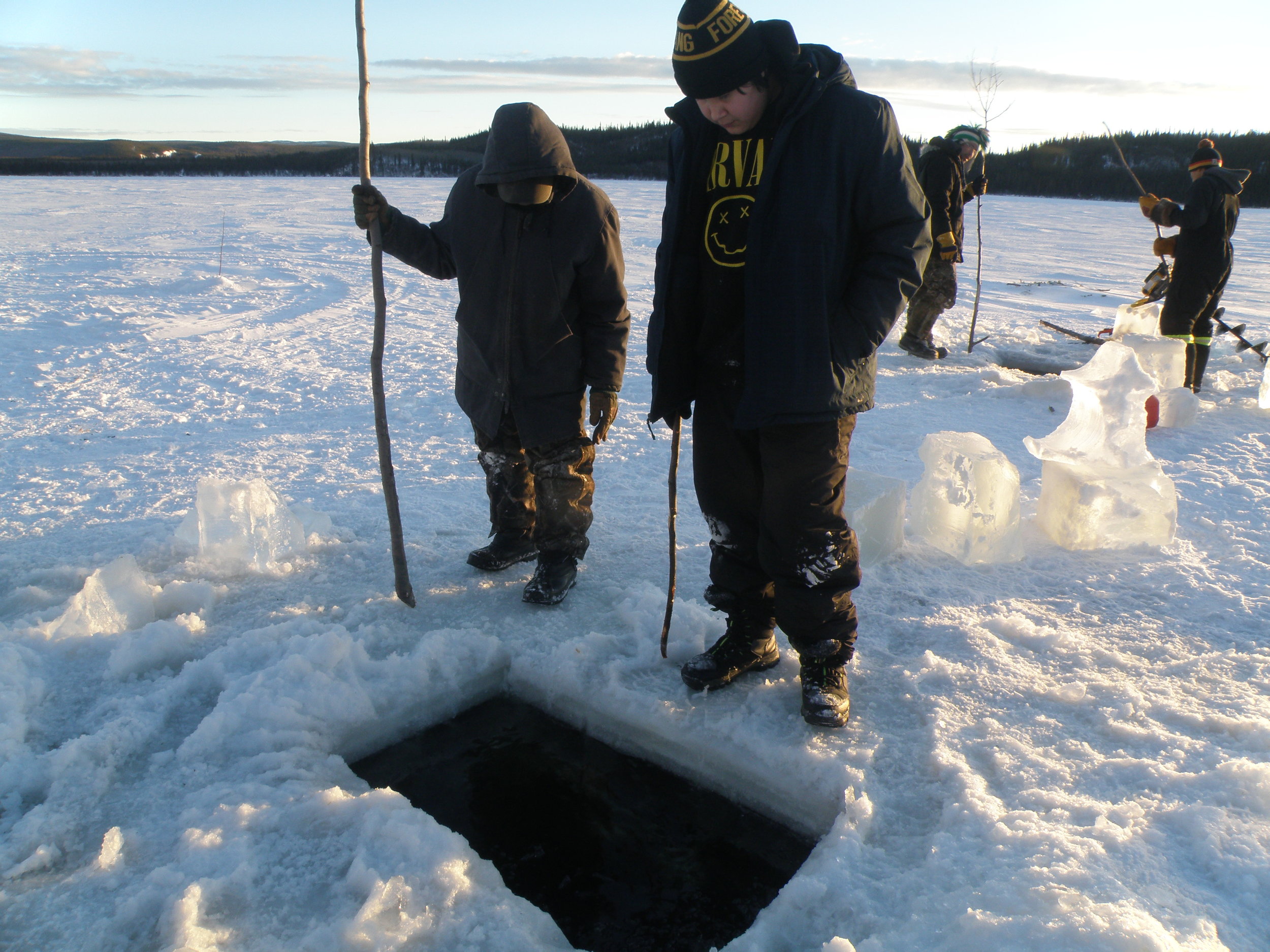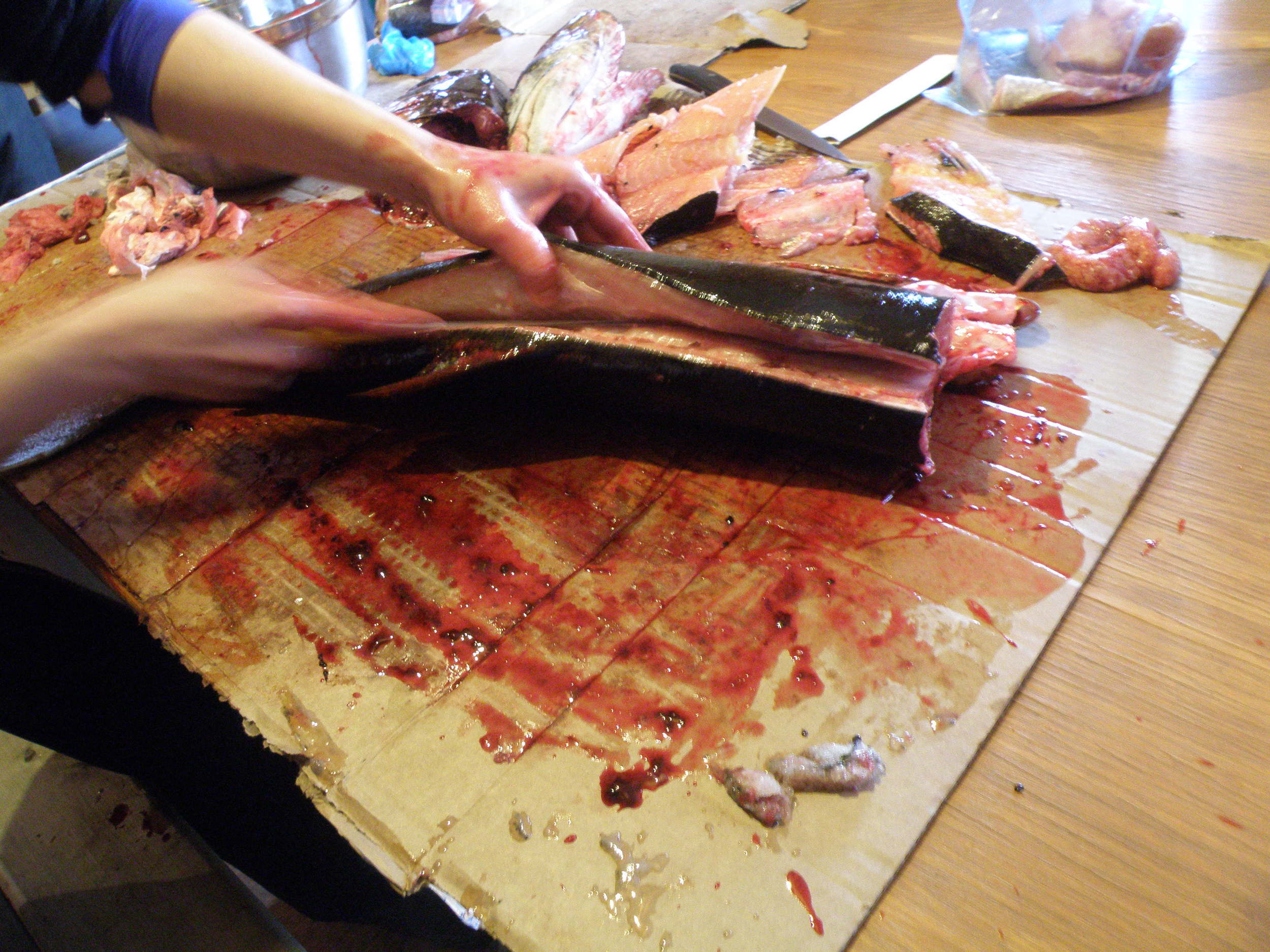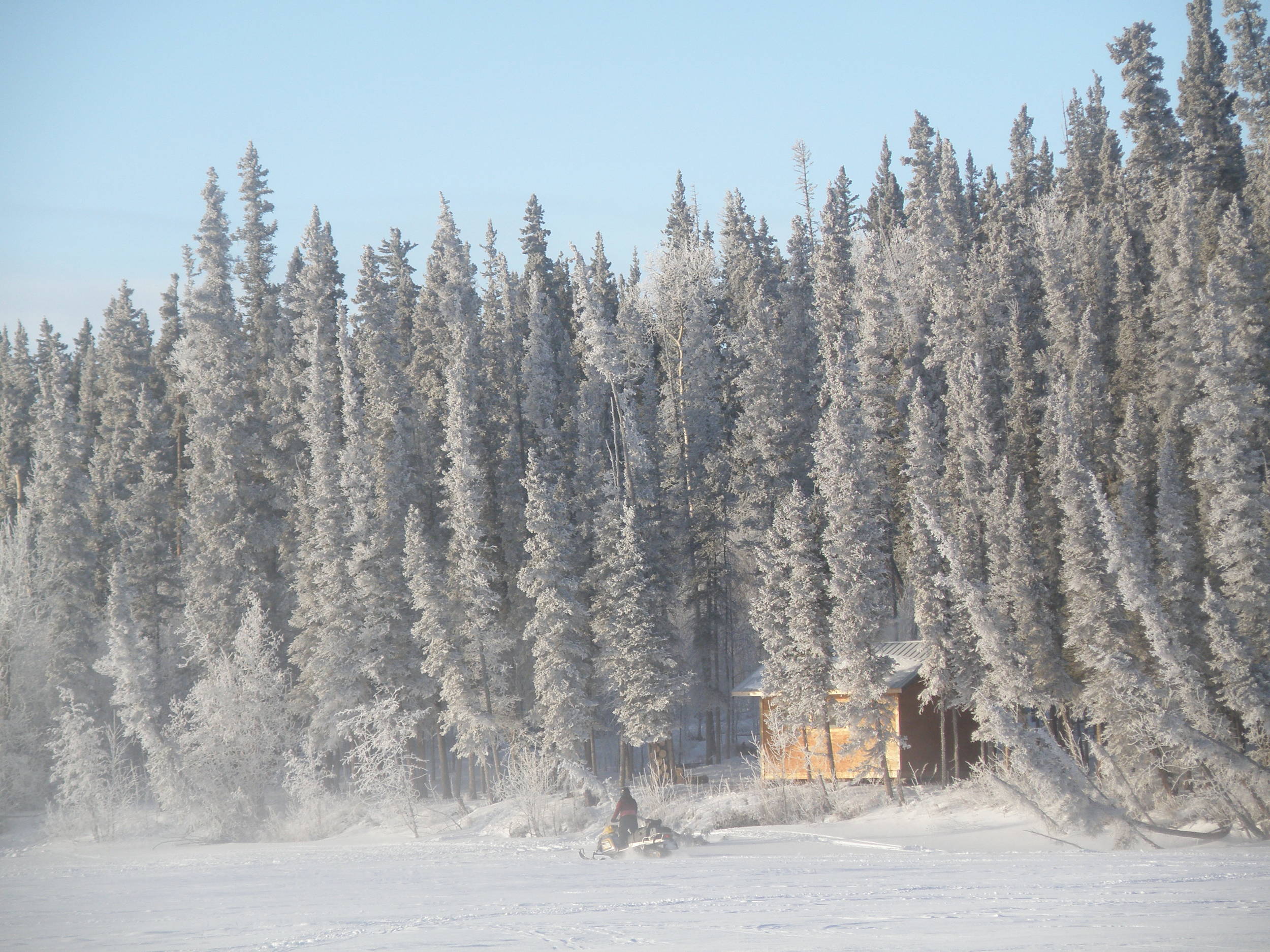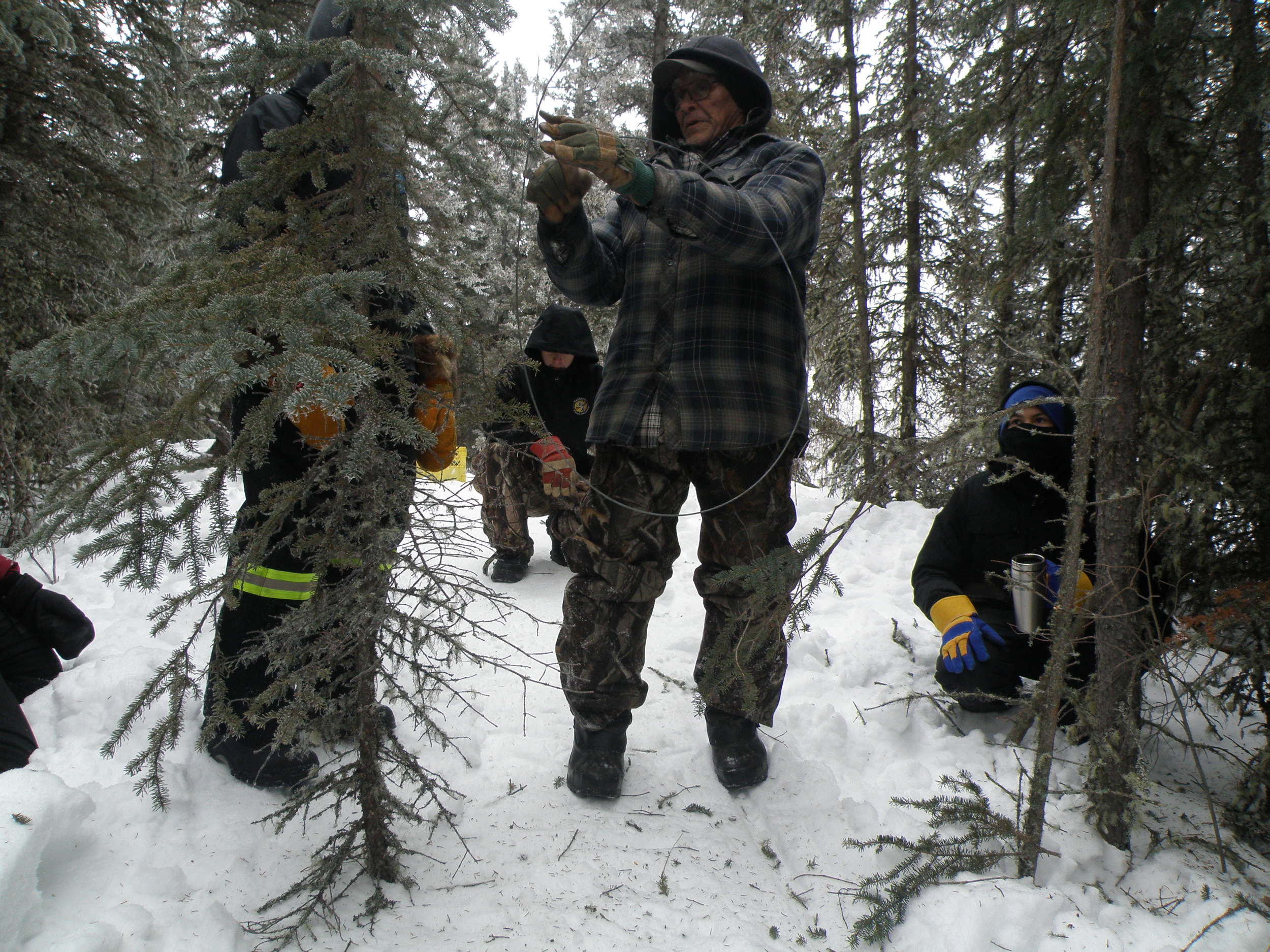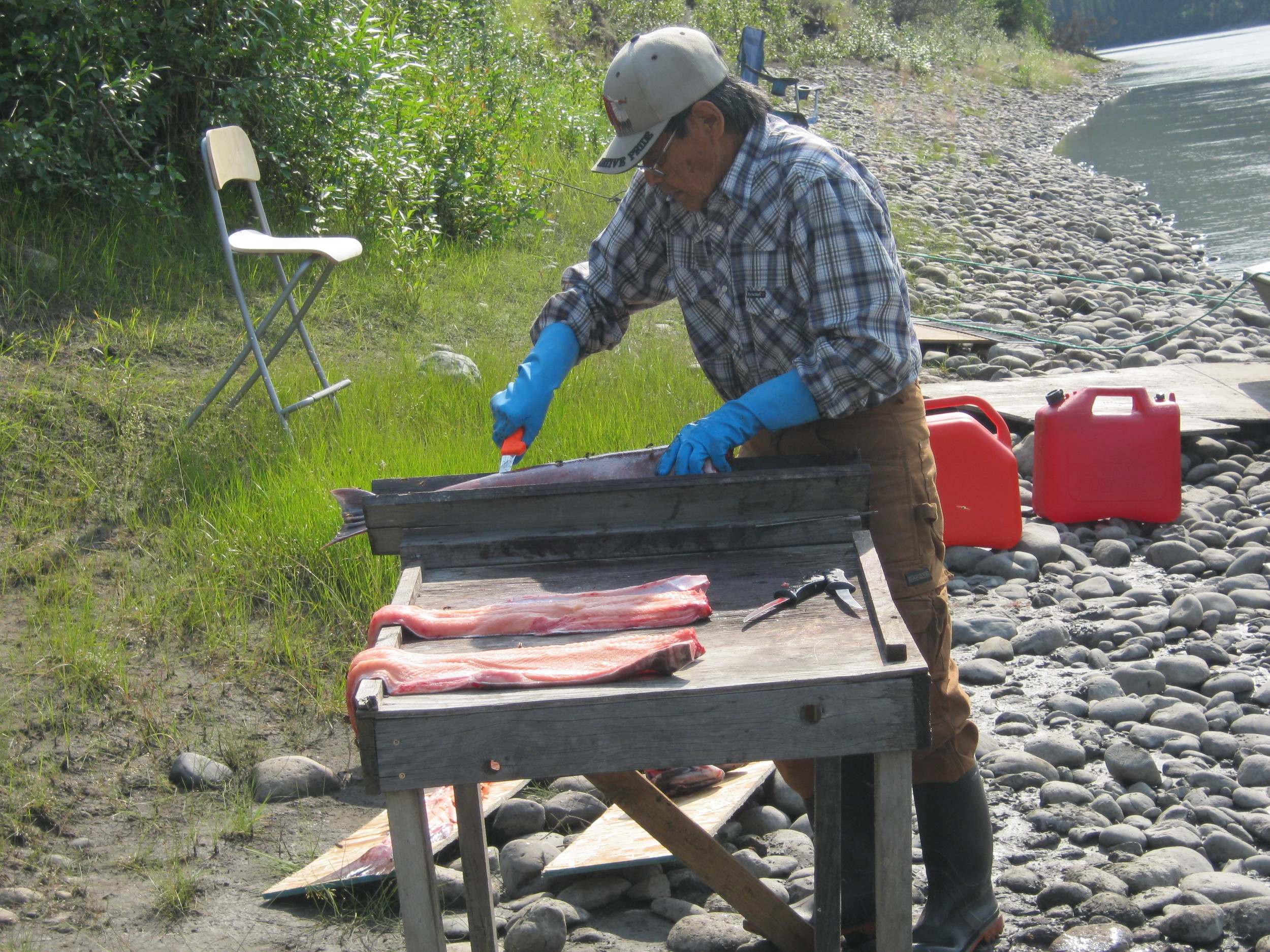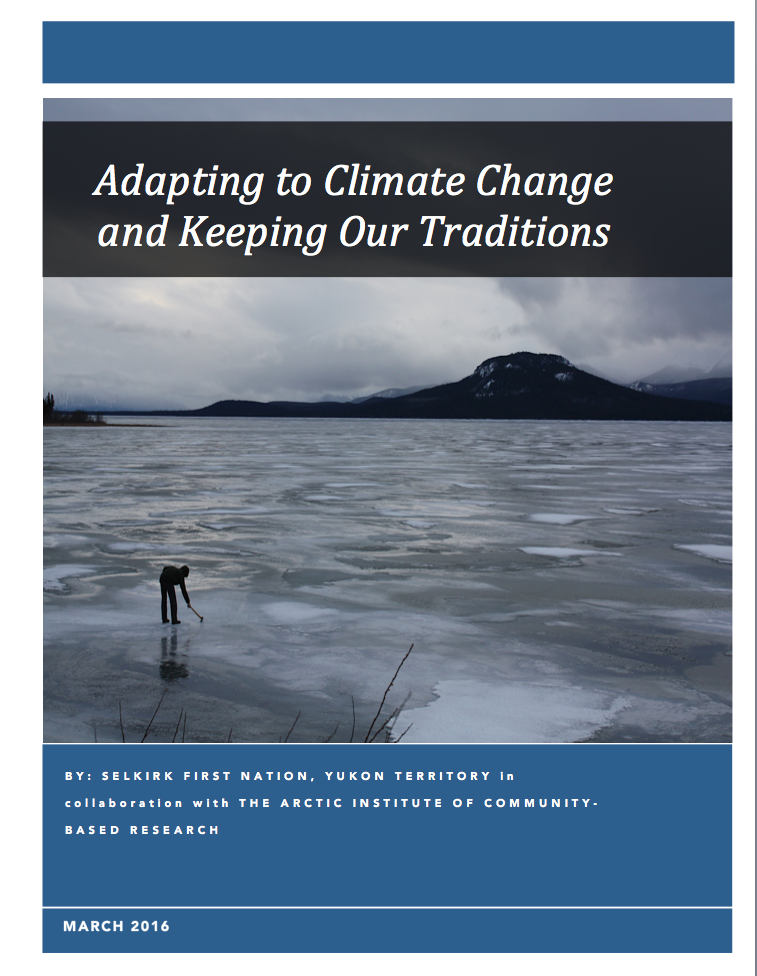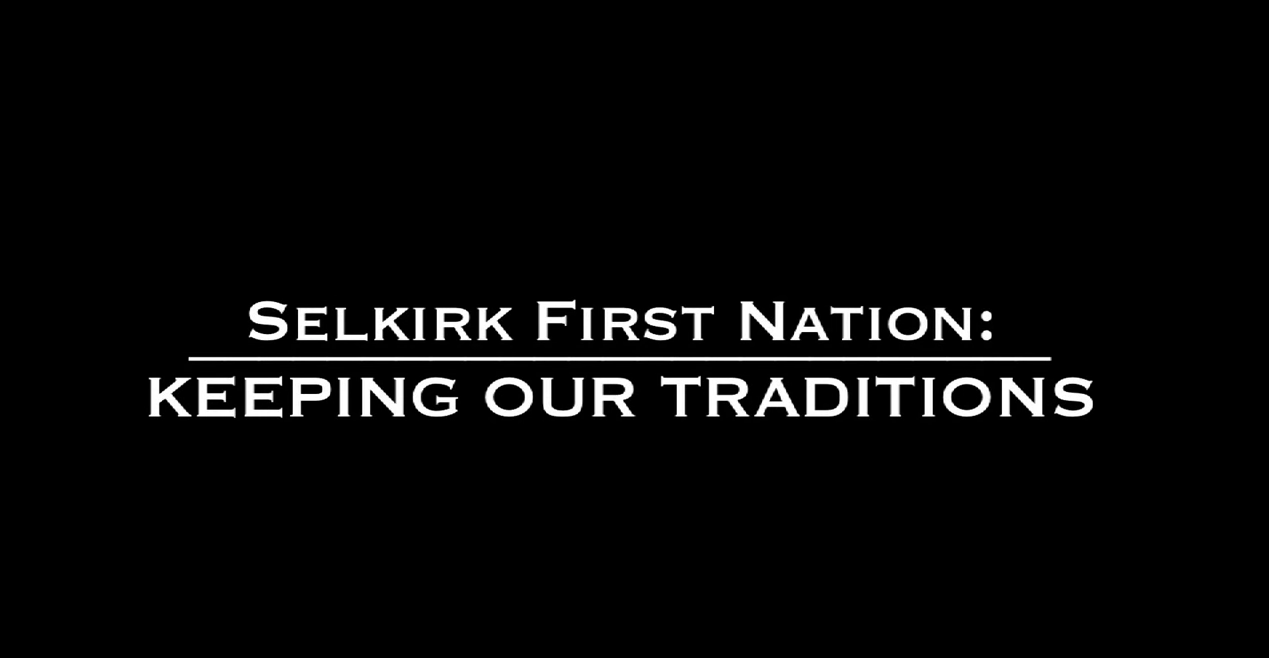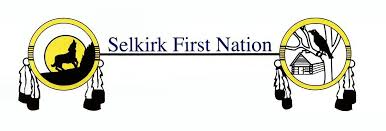
Keeping Our Traditions for the Health and Wellbeing of Future Selkirk First Nation Generations: “What do we do at the fish camp when there are no fish?”
(July 2015-March 2016)
WHAT WAS THE PROJECT ABOUT AND WHO WAS INVOLVED?
Over recent years, the rapid change in climate has brought forth a number of challenges for Selkirk First Nation (SFN) people and the land that is relied on for traditional living. Shifting landscapes and animal behaviours alter the way people have traditionally traveled upon and used their land. Managing the river systems and accessing the bounty of the lakes must now be done with extra caution. Bear safety is a great concern as they have recently been roaming closer to the community in search of food. The decline of salmon in particular has been a threat for several years, and this year most fish camps remained empty until later in the season due to a ban on fishing salmon. The fish camp is at the heart of traditional knowledge exchange between Elders and youth and so its importance is paramount. These concerns are what prompted the research question for this project:
“What will we do at the fish camp if there are no fish?”
Many northern communities consider traditional practices as a pathway to mental health and wellness for First Nation youth. This project has built off of previous SFN projects funded by Health Canada and has deepened our understandings of how traditional ecosystems, knowledge and practices, particularly as they relate to fish camp, are being impacted by climate change. The main focus of this project in relation to previously completed works was to find ways of keeping traditional Tutchone knowledge, practices and culture while adapting to the threat of climate change.
This project was a joint partnership between Selkirk First Nation and the Arctic Institute of Community-Based Research (AICBR) and employed a mixed-methods approach of community-based participatory research and Indigenous methodologies; this meant that the community was intimately involved in every stage of project development from planning the research questions, implementing research activities and analyzing and approving the data. The researchers from AICBR worked closely with the Advisory Committee on ensuring all activities were designed with community needs in mind and were carried out in the most ethical and culturally appropriate manner; this ensured relevancy of findings and community ownership over the research process. The Advisory Committee consisted of community members, Elders and representatives from SFN Lands and Resources and SFN Health and Social. The Eliza Van Bibber (EVB) School, Pelly Crossing and Bringing Youth Towards Equality (BYTE) youth facilitators from Whitehorse, collaborated with youth activities.
GOALS AND OBJECTIVES
The goal of this project was to seek community strategies for keeping Selkirk First Nation traditions and practices while adapting to climate change. The strategies that were developed were built upon the priorities of the First Nation to revitalize their connection to the land and traditions for the benefit of the community and youth.
Short-term objectives:
Engage community members to collectively address issues of climate change
To build capacity for youth in understanding climate change and conducting research
To build relationships and cohesion between community members centered on sharing ideas and spending time together
Presentation of youth perspectives on mental wellness through photographs
To compile community strategies on “what to do at the fish camp when there are no fish”
Community adaptation plan for climate change and the role of fish camps in youth mental health
Understanding climate change and health from a regional, Northern perspective
Long-term objectives:
This project will help to raise the voice of the Selkirk people on issues of health and climate change while protecting traditional lifestyles
To support youth leadership on issues relating to climate change and youth mental health
WHO FUNDEd the project?
This project was made possible by the generous funding from Health Canada’s Climate Change and Health Adaptation Program for Northern First Nations and Inuit Communities.
Main deliverables and Publications
All the contents of the Keeping Our Traditions project are owned by Selkirk First Nation; the dissemination and sharing of the deliverables by AICBR has been approved by the Selkirk First Nations government.
A literature review on climate change and mental health of Indigenous youth in Northern Canada
Interviews and focus groups with Elders, community members and youth at fish camps and in the community of Pelly Crossing
Community engagement throughout
Youth engagement and training/workshops (related to photography, running a winter fish camp, on-the-land workshops/training on climate change, mental health and wellness, community-based research processes, life skills and communication, and traditional practices of Selkirk people)
Community presentation and feast
Reports and videos -- Click icons below to download --
Film - Selkirk First Nation: Keeping Our Traditions
Community newsletter report
Final Report - Adapting to Climate Change and Keeping Our Traditions (2016)
Fish Camp Guidebook - Keeping Our Traditions at the Fish Camps: Our Ancestors' Gift to Our Youth (2016)
Publications:
Stories of Yukon Food Security. Food (In)security in Northern Canada. Northern Public Affairs Magazine. Volume 5 Issue1 (April 2017)
Authors: Jody Butler Walker, Norma Kassi, Marilyn Van Bibber, Katelyn Friendship, Molly Pratt, Math’ieya Alatini, Mary Jane Johnson, Eugene Alfred, Roger Alfred, Kluane First Nation Lands, Resources and Heritage Department, and Kluane First Nation Youth and Elders
The Partnerships, the Productions and the People behind the Lens: Promoting Youth Wellness through Community-Based Research and Filmmaking. Innovations in Community Health and Wellness. Northern Public Affairs Magazine. Volume 5 Issue 2 (July 2017)
Authors: Norma Kassi, Molly Pratt, Marilyn Van Bibber, Katelyn Friendship, Jody Butler Walker, Math’ieya Alatini Mary Jane Johnson, Roger Alfred, Eugene Alfred, Kluane First Nation Lands, Resources & Heritage Department, Kluane First Nation Youth and Elders, & the Vuntut Gwitchin Natural Resources Department
Photo Gallery
Pictures taken by youth and research team, namely Marilyn Van Bibber, Norma Kassi, Colton Blackjack, Daniel Tuck, Kylie Williams, Tamara Silas, Dylan Alfred, Cameron Silas, and Lois Joe.
